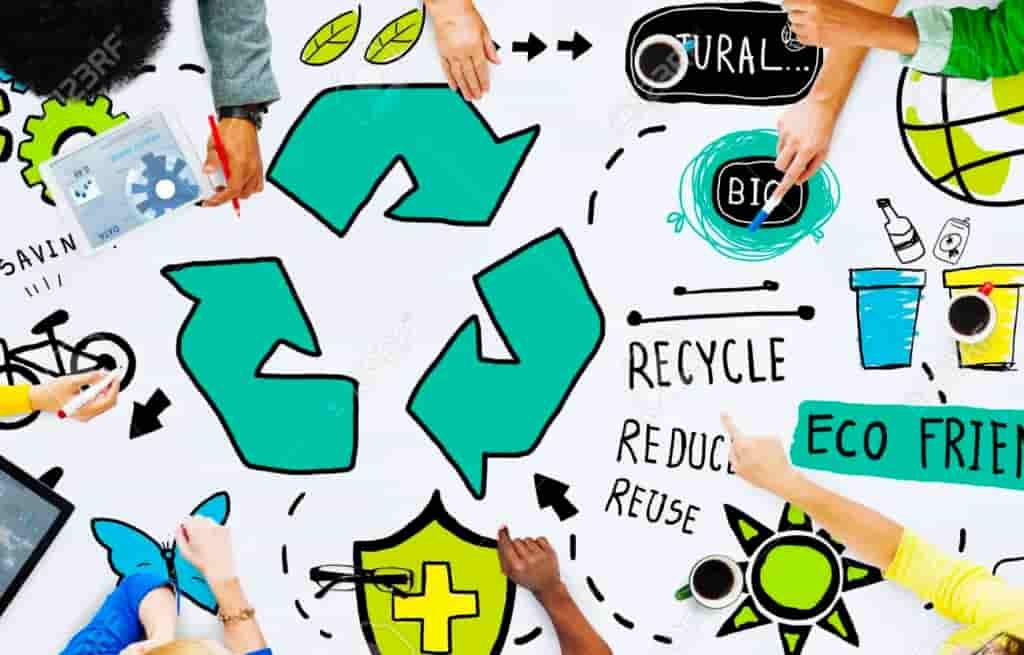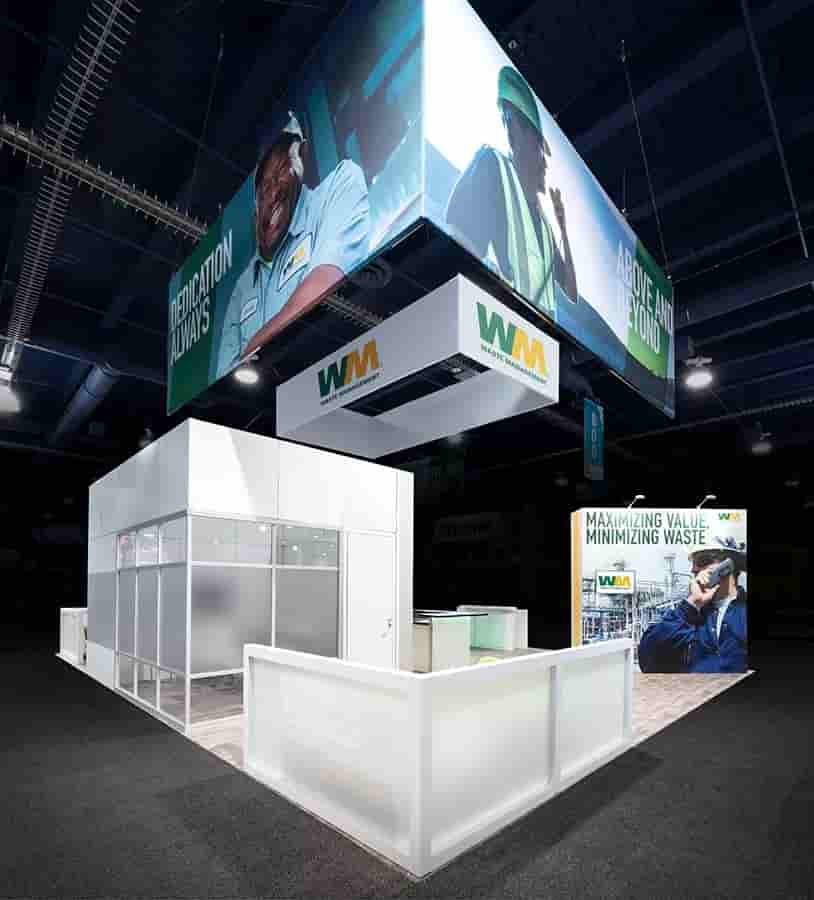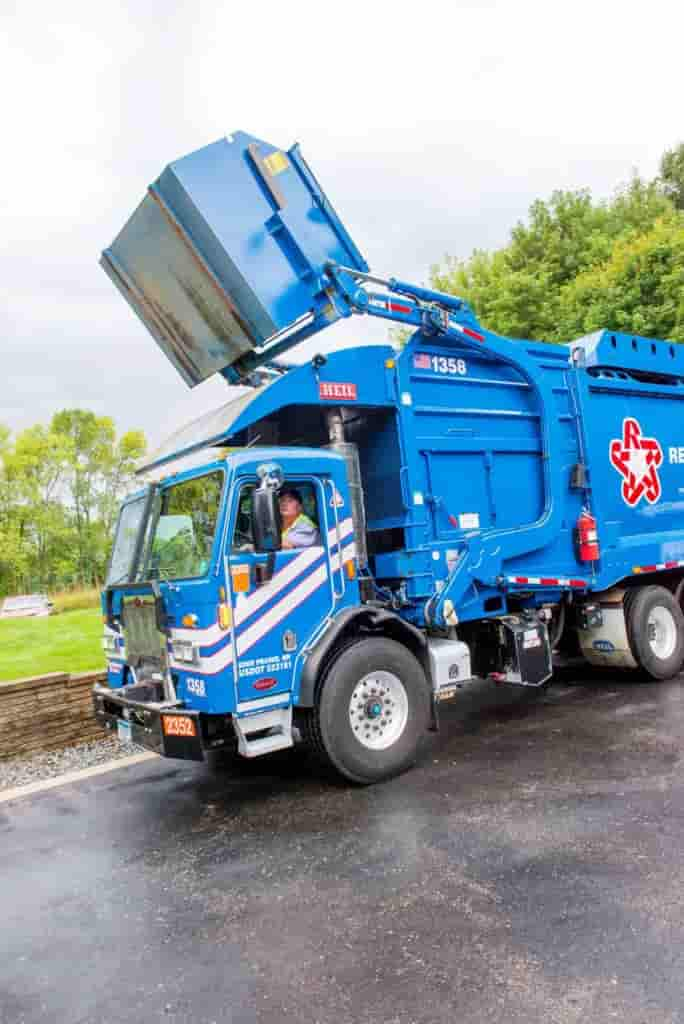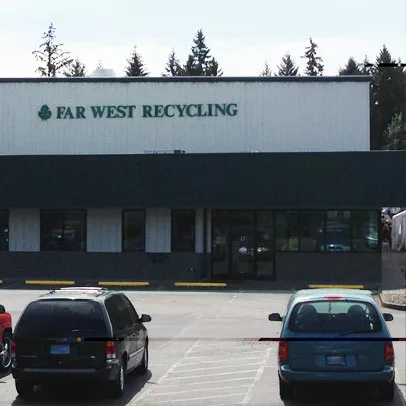In today’s world, there is a growing concern about the impact of waste on the environment. Recycling is one of the most effective ways to reduce our carbon footprint and protect the planet.
However, simply disposing of our household waste in a recycling bin is not enough. We must adopt a more environmentally conscious approach to recycling if we want to make a real difference. This means being mindful of what we recycle, reducing our overall waste production, and ensuring that our recycling practices are sustainable.

In this blog, we will explore the importance of environmentally conscious recycling and provide practical tips to help you become a more responsible recycler.
So, let’s dive in and discover how we can all play a part in protecting our planet through sustainable recycling practices.
Importance of recycling
Recycling is a vital process that has a significant impact on our environment, economy, and society. The act of recycling helps to conserve natural resources, reduce greenhouse gas emissions, and decrease the amount of waste sent to landfills. The benefits of recycling are far-reaching and can positively affect both present and future generations.
By recycling, we are reducing the need for raw materials, which are often obtained through environmentally damaging methods. Recycling also saves energy, as it takes less energy to produce products from recycled materials compared to virgin materials. This reduction in energy consumption results in a decrease in greenhouse gas emissions, which in turn helps to combat climate change.
Furthermore, recycling creates job opportunities and stimulates the economy. It is estimated that the recycling industry employs over 1.1 million people in the United States alone. Recycling also generates revenue through the sale of recycled materials, which can be used to fund other programs and initiatives.

But the impact of recycling goes beyond just environmental and economic benefits. It also has a positive effect on society as a whole. Recycling helps to promote a sense of responsibility and accountability in individuals and communities. It encourages us to be mindful of our actions and to take steps towards a more sustainable future.
Additionally, recycling helps to reduce litter and keep our communities clean and beautiful.
It helps to conserve natural resources, reduce greenhouse gas emissions, create jobs, stimulate the economy, and promote a sense of responsibility in individuals and communities. Recycling is a simple yet effective way to make a positive impact on our world and ensure a sustainable future for generations to come.
Environmental Benefits of recycling
Recycling is one of the most effective ways to reduce the negative impact of humans on the environment. There are many environmental benefits of recycling that cannot be ignored. Recycling helps to conserve natural resources by reducing the need for new raw materials.

When we recycle, we can reuse materials that would otherwise have been thrown away, such as paper, plastic, glass, and metal. This, in turn, reduces the demand for new resources, which can help to protect our natural habitats and wildlife.
Another environmental benefit of recycling is that it conserves energy. Recycling uses less energy than producing new materials from scratch. For example, it takes less energy to recycle aluminum cans than to produce new ones. This is because it takes a lot of energy to mine, refine, and transport raw materials, whereas recycling uses much less energy.
By conserving energy, we can reduce our carbon footprint and help to combat climate change.
Recycling also helps to reduce pollution. When we recycle materials, we keep them out of landfills and incinerators. This, in turn, reduces the amount of waste that is produced and helps to prevent pollution.
Finally, recycling helps to create jobs and boost the economy. Recycling facilities and programs create jobs in the collection, transportation, and processing of materials. This can help to boost local economies and create new opportunities for workers.
Hence, recycling has many environmental benefits that cannot be ignored. By conserving natural resources, conserving energy, reducing pollution, and creating jobs, recycling helps to protect the environment and create a more sustainable future for us all. It is important that we all do our part to recycle and reduce our impact on the planet.
Some popular recycling companies
Waste Management Inc.

(WM) is a provider of waste management and environmental services. It has a presence in the entire waste management vertical from collection, solid and hazardous waste landfill management, transfer, recycling and resource recovery to disposal. WM’s network includes 346 transfer stations, 293 active landfill disposal sites, 146 recycling plants, 111 beneficial-use landfill gas projects, and six independent power production plants.
Republic Services

It is a provider of recycling processes and non-hazardous solid waste management services. The company collects, recycles, treats, recovers, and disposes of waste. Republic Services has a notable market share in at least four industries: Waste Collection Services, Waste Treatment & Disposal Services, Recycling Facilities, Dumpster Rental and Waste Collection Services.
Far west recycling

Far West Recycling is a recycling company that provides recycling services to the public and businesses of all sizes. They are committed to meeting all your recycling needs, including paper recycling, plastic recycling, and metal recycling. Far West Recycling is also an active participant in CICP and with local police and sheriff departments in combating metal theft.
Veolia

Veolia is a world reference in the management of solid or liquid non-hazardous or hazardous waste. The company is involved in the entire waste life cycle, from collection to final treatment, and makes its recovery a priority. According to their origin and composition, hazardous waste can be incinerated or physicochemically treated in dedicated facilities or stabilized and buried in special landfills. Veolia develops innovative solutions to increase the rate of waste recycling and conversion into matter or energy.
Waste Connections

Waste Connections is a premier provider of solid waste collection, transfer, recycling, and disposal services, along with recycling and resource recovery, in mostly exclusive and secondary markets across the US and Canada. Waste Connections makes commercial recycling easy and convenient with single-stream recycling services.
Recycling tips to follow at home
Recycling is one of the easiest ways to do our part in protecting the environment. It’s a simple yet powerful way to reduce waste and conserve natural resources. But what are the best recycling practices to follow at home? Well, there are a few things you can do to make sure you’re recycling in the most effective and efficient way possible.
Firstly, make sure you know what can and cannot be recycled in your area. Different regions have different recycling programs, so it’s important to check with your local recycling center or waste management company to find out what can and cannot be recycled. This will help ensure that you’re not contaminating the recycling stream with items that can’t be recycled.
Another important recycling practice is to properly prepare your recyclables. This means rinsing out containers, removing labels, and separating materials into their respective categories. This helps ensure that the materials are clean and free of any contaminants, making it easier for them to be processed and turned into new products.
Additionally, it’s important to reduce your overall waste by minimizing the amount of single-use products you use. This can be done by opting for reusable alternatives such as cloth napkins, reusable water bottles, and cloth shopping bags. By reducing your consumption of single-use products, you’re also reducing the amount of waste that needs to be recycled.
Overall, following these best recycling practices at home can make a big difference in protecting the environment and conserving natural resources. By being mindful of what you’re recycling, properly preparing your recyclables, and minimizing your overall waste, you’re doing your part in creating a more sustainable future for all. So, let’s all do our part and recycle right!
Tips for environmentally conscious recycling
As global citizens, we have a responsibility to take care of our planet and reduce our carbon footprint. One of the ways we can do that is by practicing environmentally conscious recycling. Recycling is a simple yet effective way to reduce waste and conserve resources. However, not all recycling practices are created equal.
To truly make a difference, we need to be mindful of our recycling habits and make conscious choices. Here are some tips for environmentally conscious recycling.
Firstly, it’s important to understand what can and cannot be recycled in your area. Different recycling facilities have different guidelines, so it’s important to check with your local recycling center.
Recyclable materials include paper, plastic, glass, and metal, but not all types are accepted in all locations. Knowing what can be recycled will help you make informed decisions about what to toss in the recycling bin.
Secondly, avoid contaminating your recycling. Contamination occurs when non-recyclable items are mixed in with recyclable materials. This can cause entire batches of recyclables to be rejected and sent to the landfill.
Lastly, reduce your overall waste by practicing the three R’s: Reduce, Reuse, and Recycle. Before tossing something in the trash, consider if it can be reused or repurposed. For example, old clothing can be donated or repurposed into cleaning rags.
Recycling is an important aspect of environmental conservation, but it’s important to practice it consciously. By knowing what can and cannot be recycled, avoiding contamination, and reducing overall waste, we can make a positive impact on the planet.
What Do We Think About Environmentally Conscious Recycling?
Recycling is an efficient, simple, and cost-effective way to protect the environment, conserve natural resources, and maintain a healthy ecosystem.
The act of recycling is simple: you take items that would otherwise be thrown away and turn them into new products instead. Recycling can benefit your health and help to protect the natural resources available to us all.
The benefits of recycling are many. It helps to conserve natural resources, reduce greenhouse gas emissions, and protect our natural habitats and wildlife. It can also create jobs, stimulate the economy, and promote a sense of responsibility among individuals and communities. Recycling is also a great way to protect our environment and creating a closed loop system of production and consumption.








